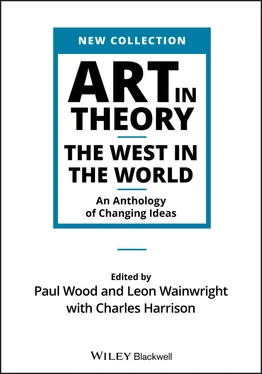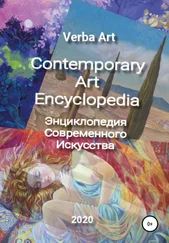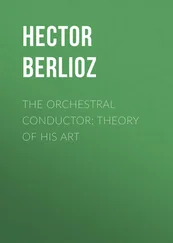When I was at sea last August, on my voyage to this country, which I had long and ardently desired to visit, I found one evening, on inspecting the observations of the day, that India lay before us, and Persia to our left, whilst a breeze from Arabia blew nearly on our stern. A situation so pleasing in itself, and to me so new, could not fail to awaken a train of reflections in a mind, which had early been accustomed to contemplate with delight the eventful histories and agreeable fictions of this eastern world. It gave me inexpressible pleasure to find myself in the midst of so noble an amphitheatre, almost encircled by the vast regions of Asia, which has ever been esteemed the nurse of sciences, the inventress of delightful and useful arts, the scene of glorious actions, fertile in the productions of human genius, abounding in natural wonders, and infinitely diversified in the forms of religion and government, in the laws, manners, customs, and languages, as well as in the features, and complexions, of men. I could not help remarking, how important and extensive a field was yet unexplored, and how many solid advantages unimproved; and when I considered, with pain, that, in this fluctuating, imperfect and limited condition of life, such inquiries and improvements could only be made by the united efforts of many, who are not easily brought, without some pressing inducement or strong impulse, to converge in a common point, I consoled myself with a hope, founded on opinions which it might have the appearance of flattery to mention, that, if in any country or community, such an union could be effected, it was among my countrymen in Bengal, with some of whom I already had, and with most was desirous of having, the pleasure of being intimately acquainted.
You have realised that hope, gentlemen, and even anticipated a declaration of my wishes, by your alacrity in laying the foundation of a society for inquiring into the history and antiquities, the natural productions, arts, sciences, and literature of Asia. […]
It is your design, I conceive, to take an ample space for your learned investigations, bounding them only by the geographical limits of Asia; so that, considering Hindustan as a centre, and turning your eyes in idea to the North, you have on your right, many important kingdoms in the Eastern peninsula, the ancient and wonderful empire of China with all her Tartarian dependencies, and that of Japan, with the cluster of precious islands, in which many singular curiosities have too long been concealed: before you lies that prodigious chain of mountains, which formerly perhaps were a barrier against the violence of the sea, and beyond them the very interesting country of Tibet, and the vast regions of Tartary … on your left are the beautiful and celebrated provinces of Iran or Persia, the unmeasured, and perhaps unmeasurable deserts of Arabia, and the once flourishing kingdom of Yemen, with the pleasant isles that the Arabs have subdued or colonized; and farther westward, the Asiatick dominions of the Turkish sultans, whose moon seems approaching rapidly to its wane. By this great circumference, the field of your useful researches will be inclosed; but, since Egypt had unquestionably an old connection with this country, if not with China since the language and literature of the Abyssinians bear a manifest affinity to those of Asia, since the Arabian arms prevailed along the African coast of the Mediterranean, and even erected a powerful dynasty on the continent of Europe, you may not be displeased occasionally to follow the streams of Asiatick learning a little beyond its natural boundary. […]
If it now be asked, what are the intended objects of our inquiries within these spacious limits, we answer, MAN and NATURE; whatever is performed by the one, or produced by the other. Human knowledge has been elegantly analysed according to the three great faculties of the mind, memory , reason , and imagination … hence the three main branches of learning are history , science , and art : the first comprehends either an account of natural productions, or the genuine records of empires and states; the second embraces the whole circle of pure and mixed mathematicks, together with ethicks and law, as far as they depend on the reasoning faculty; and the third includes all the beauties of imagery and the charms of invention, displayed in modulated language, or represented by colour, figure, or sound. […]
Whoever travels in Asia, especially if he be conversant with the literature of the countries through which he passes, must naturally remark the superiority of European talents: the observation, indeed, is at least as old as ALEXANDER; and, though we cannot agree with the sage preceptor [i.e. Aristotle] of that ambitious Prince, that ‘the Asiaticks are born to be slaves,’ yet the Athenian poet [i.e. Aeschylus] seems perfectly in the right, when he represents Europe as a sovereign Princess, and Asia as her handmaid: but, if the mistress be transcendently majestic, it cannot be denied that the attendant has many beauties, and some advantages peculiar to herself … [A]lthough we must be conscious of our superior advancement in all kinds of useful knowledge, yet we ought not therefore to contemn the people of Asia, from whose researches into nature, works of arts and inventions of fancy, many valuable hints may be derived for our own improvement and advantage. If that, indeed were not the principal object of your institution, little else could arise from it but the mere gratification of curiosity. […]
To form an exact parallel between the works and actions of the Western and Eastern worlds, would require a tract of no inconsiderable length; but we may decide on the whole, that reason and taste are the grand prerogatives of European minds, while the Asiaticks have soared to loftier heights in the sphere of imagination.
* * *
In those elegant arts, which are called fine and liberal , though of less general utility than the labours of the mechanick, it is really wonderful how much a single nation has excelled the whole world: I mean the ancient Greeks, whose Sculpture, of which we have exquisite remains both on gems and in marble, no modern tool can equal; whose Architecture we can only imitate at a servile distance, but are unable to make one addition to it, without destroying its graceful simplicity; whose Poetry still delights us in youth, and amuses us at a mature age; and of whose Painting and Musick we have the concurrent relations of so many grave authors, that it would be strange incredulity to doubt their excellence.
Painting, as an art belonging to the powers of imagination, or what is commonly called Genius, appears to be yet in its infancy among the people of the East: but the Hindu system of musick has, I believe, been formed on truer principles than our own; and all the skill of the native composers is directed to the great object of their art, the natural expression of strong passions , to which melody, indeed, is often sacrificed: though some of their tunes are pleasing even to an European ear. […]
The poetical works of the Arabs and Persians, which differ surprisingly in their style and form, are here pretty generally known … [W]e may safely say of them, what ABULFAZL pronounces of the Mahábhárat, that, ‘although they abound with extravagant images and descriptions, they are in the highest degree entertaining and instructive.’ … If we may form a just opinion of the Sanscrit poetry from the specimens already exhibited, (though we can only judge perfectly by consulting the originals), we cannot but thirst for the whole work of VYA’SA, with which a member of our society … will in due time gratify the publick. […]
Читать дальше












